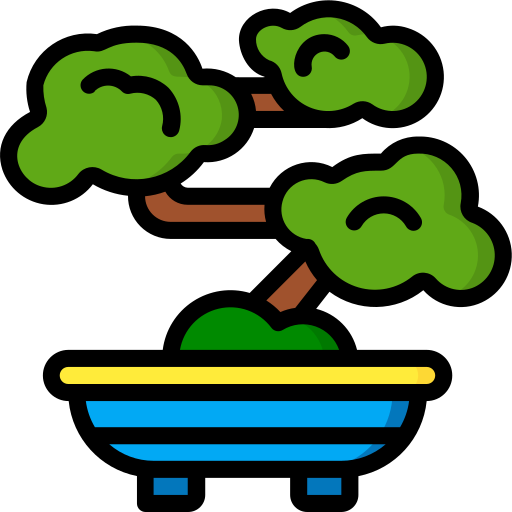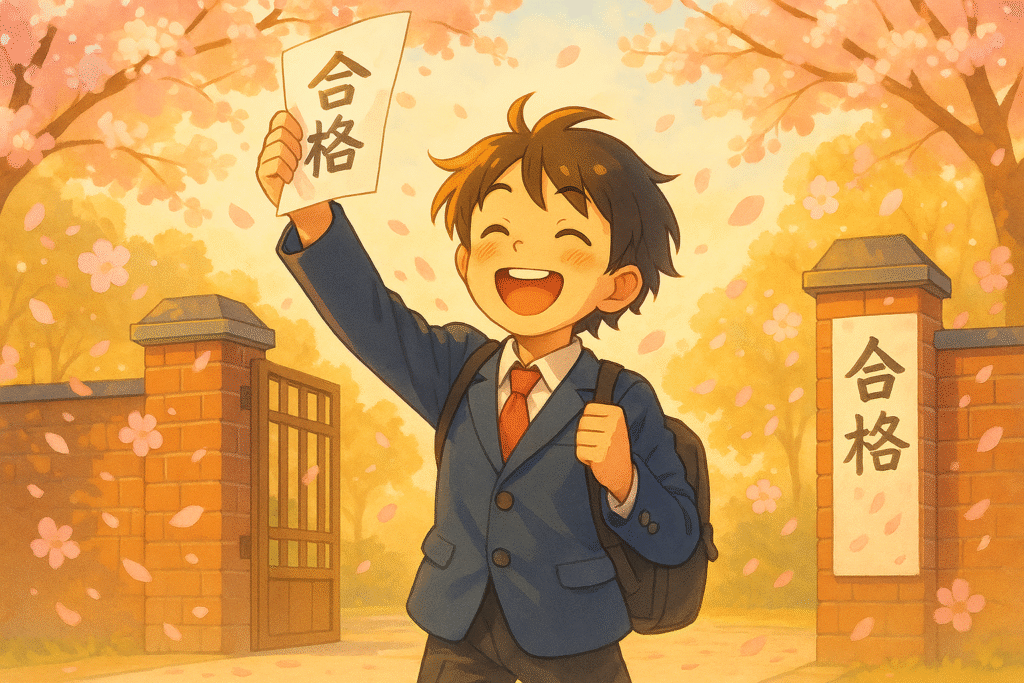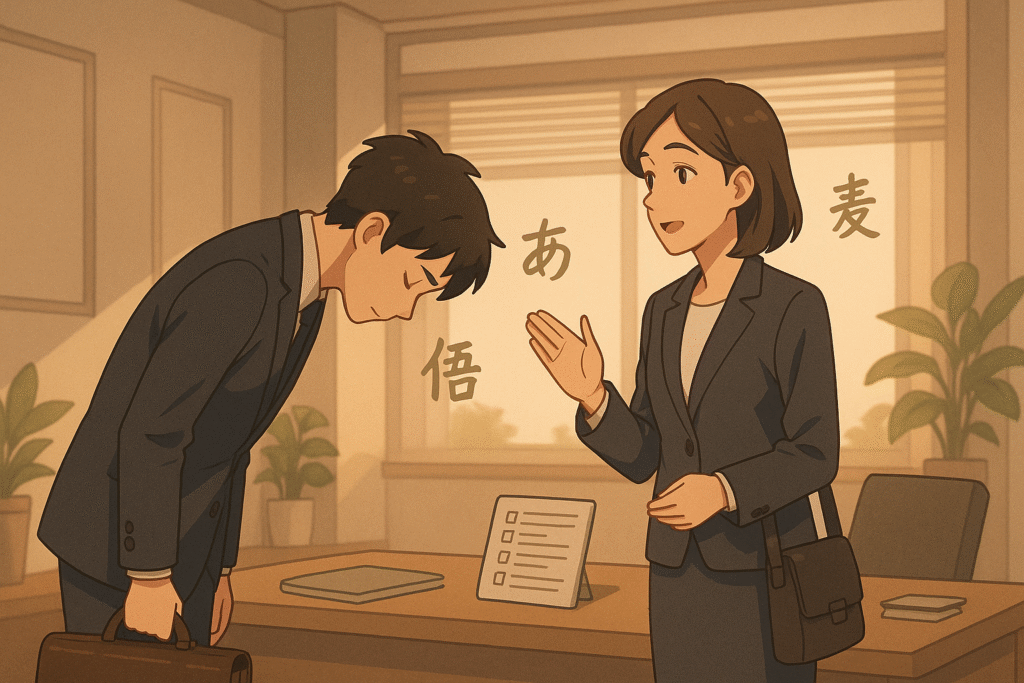Have you ever wondered what someone in Japan says when they pick up the phone? If you’ve watched anime or Japanese movies, you’ve likely heard the phrase “moshi moshi” countless times (sometimes incorrectly written as “mushi mushi in English” resources). But what exactly does moshi moshi in English mean, and when should you use it? This comprehensive guide will decode this quintessential Japanese greeting and help you navigate phone conversations in Japanese with confidence.
Want to start learning Japanese right away?
Access our Free Study Guides with grammar explanations, vocabulary lists, and study tips. All at no cost.
What Does Moshi Moshi Mean in English? (Not Mushi Mushi)
The direct translation of moshi moshi in English would be something like “speak speak” or “hello hello,” functioning as the Japanese equivalent of saying “hello” when answering the phone. However, its meaning goes deeper than a simple greeting. Note that “mushi mushi in English” is actually a common misspelling—the correct spelling is “moshi moshi” (もしもし).
Moshi moshi in English context is best understood as “I’m speaking” or “I’m ready to talk,” indicating that you’re present and attentive on the call. The expression comes from the humble verb “mosu” (申す), which is a polite form of “to say” or “to speak.”
Unlike many Japanese phrases that have multiple applications, moshi moshi in English situations is exclusively for telephone conversations—you would never use it for face-to-face greetings.
The Cultural Origins of Moshi Moshi
Understanding why moshi moshi in English translates to a phone-specific greeting requires a brief look at Japanese cultural history.
The expression gained popularity during the early days of telephone technology in Japan (late 19th century). During this period, telephone connections were often unclear, and saying “moshi moshi” served two practical purposes:
- Clarity check: Repeating the word helped confirm the connection was working
- Identity verification: According to folklore, ghosts and spirits cannot say “moshi moshi” twice in succession, so the repetition reassured the listener they were speaking to a human!
This cultural background explains why moshi moshi in English doesn’t have a perfect equivalent—it carries unique historical and supernatural connotations that don’t translate directly.
How to Properly Pronounce Moshi Moshi
To sound natural when using moshi moshi in English conversation with Japanese speakers, pronunciation is key. Here’s a breakdown:
- もし (moshi): Pronounced “moh-shee” with equal stress on both syllables
- もしもし (moshi moshi): Pronounced “moh-shee moh-shee” with a slightly rising intonation
The “o” sound is short (not like the “o” in “most”), and the “shi” is pronounced with a soft “sh” sound followed by a short “i” as in “it.”
Practice tip: Record yourself saying moshi moshi in English conversation practice, then compare it with native speakers in Japanese language learning apps or videos.

When to Use Moshi Moshi (And When Not To)
Understanding the correct context for moshi moshi in English speaking environments is crucial to avoid cultural misunderstandings:
Appropriate Uses:
- Answering personal phone calls: Perfect for casual or semi-formal calls
- Beginning a phone conversation: Used immediately after picking up
- Checking if someone is still on the line: When you suspect the connection might be broken
Inappropriate Uses:
- Face-to-face greetings: Never use moshi moshi in person (use “konnichiwa” instead)
- Business phone calls: In formal business settings, stating your name and company is preferred
- Text messages or emails: Written communication has different greeting conventions
For those interested in other everyday Japanese greetings beyond moshi moshi in English translations, check out our comprehensive guide on how to say “how are you” in Japanese.
Moshi Moshi vs. Other Japanese Greetings
To fully grasp how moshi moshi in English contexts differs from other Japanese greetings, let’s compare:
| Japanese Greeting | When to Use | English Equivalent | Level of Formality |
|---|---|---|---|
| もしもし (Moshi moshi) | Phone calls only | “Hello” (on phone) | Casual to semi-formal |
| こんにちは (Konnichiwa) | Daytime face-to-face | “Good afternoon/hello” | Standard polite |
| もしもし、〇〇です (Moshi moshi, 〇〇 desu) | Identifying yourself on phone | “Hello, this is 〇〇” | Semi-formal |
| お電話ありがとうございます (O-denwa arigatō gozaimasu) | Business phone greeting | “Thank you for calling” | Formal |
This comparison highlights why understanding moshi moshi in English requires cultural context—it occupies a specific communication niche that other greetings cannot replace.
Real-Life Phone Conversation Examples
Let’s see moshi moshi in English practice through some typical Japanese phone conversations:
Casual Phone Call
Person A (answering): もしもし?
Moshi moshi?
“Hello?” (Literally: Moshi moshi in English)
Person B: もしもし、たけしだけど、元気?
Moshi moshi, Takeshi dakedo, genki?
“Hello, it’s Takeshi. How are you?”
Semi-Formal Call
Person A (answering): もしもし、鈴木です。
Moshi moshi, Suzuki desu.
“Hello, this is Suzuki speaking.”
Person B: もしもし、鈴木さん。田中です。お時間よろしいですか?
Moshi moshi, Suzuki-san. Tanaka desu. O-jikan yoroshii desu ka?
“Hello, Suzuki. This is Tanaka. Do you have time to talk now?”
These examples show how moshi moshi in English serves as more than just “hello”—it initiates the conversational rhythm unique to Japanese phone communication.
Modern Usage and Variations
In contemporary Japan, moshi moshi in English equivalents have evolved with technology:
- Smartphone era: Younger Japanese may answer with a simple “hai” (yes) or their name instead of the traditional moshi moshi
- Regional variations: Some dialects have unique phone greetings, though moshi moshi remains universally understood
- Text abbreviations: In text messages, “MM” sometimes appears as shorthand for moshi moshi
For language learners, mastering moshi moshi in English environments helps you sound more natural when making calls in Japan. For those looking to improve their overall Japanese communication skills, our guide on learning Japanese without a teacher offers valuable self-study techniques.
Love Japan? Stay in the Loop!
Hi, I’m Jesse! Join 100+ learners and get my best Japanese learning tips straight to your inbox.
Tips for Using Moshi Moshi in Phone Conversations
To effectively use moshi moshi in English speaking contexts:
- Answer promptly: In Japan, phones are typically answered by the third ring
- Start with moshi moshi: Say it immediately after picking up
- Follow with identification: After moshi moshi, state your name (especially if the caller might not recognize your voice)
- Speak clearly: Phone etiquette in Japan values clear articulation
- Maintain politeness: The tone should be friendly but respectful
For comprehensive Japanese learning resources, including audio guides for perfect pronunciation of phrases like moshi moshi in English conversation, visit our resources page where you can download free guides.
Common Questions About Moshi Moshi in English (Not Mushi Mushi)
What is the literal translation of “moshi moshi” in English?
The literal translation of moshi moshi in English is “speak speak,” derived from the humble Japanese verb “mosu” (to speak). It is not “mushi mushi in English” as sometimes mistakenly written or searched for online.

Can I use “moshi moshi” when meeting someone in person?
No, “moshi moshi” should never be used for in-person greetings. It’s exclusively for phone conversations.
Why do Japanese people say “moshi moshi” twice?
The repetition originated from early telephone technology when connections were unreliable, and repeating words helped confirm the line was working. It also has cultural roots in the belief that supernatural beings cannot pronounce “moshi moshi” properly.
What’s the proper response when someone says “moshi moshi” to you?
The appropriate response is to say “moshi moshi” back, followed by identifying yourself: “Moshi moshi, [your name] desu.”
Is “moshi moshi” formal or informal?
Moshi moshi is semi-formal—appropriate for personal calls but usually replaced with more formal greetings in business settings.
Conclusion: Mastering Moshi Moshi for Natural Japanese Conversations
Understanding moshi moshi in English context is a small but significant step toward cultural and linguistic fluency in Japanese. This phone greeting reveals fascinating aspects of Japanese communication etiquette, technological history, and even supernatural folklore.
Remember that while some resources might incorrectly refer to “mushi mushi in English,” the correct spelling and pronunciation is “moshi moshi” (もしもし)—this accuracy matters when learning proper Japanese pronunciation.
By learning when and how to use moshi moshi correctly, you’re not just memorizing words—you’re embracing cultural practices that make your Japanese interactions more authentic and respectful. While moshi moshi in English might simply translate to “hello on the phone,” its cultural significance runs much deeper.
Whether you’re preparing for a trip to Japan, communicating with Japanese friends, or simply expanding your language skills, mastering this distinctive greeting will enhance your confidence in Japanese telephone conversations.
What other Japanese phrases have you found challenging to translate directly into English? Share your experiences in the comments below!
Connect with Fellow Japanese Learners!
Ask questions, get study tips, and take part in weekly challenges. Join a community of motivated learners exploring both the language and culture of Japan!




